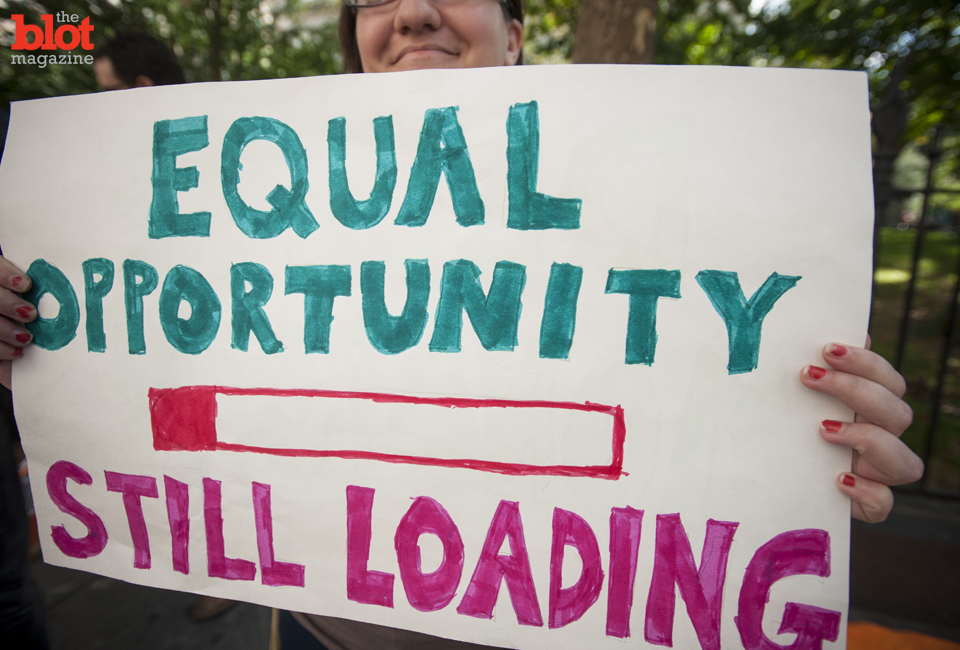
The chairman of the Federal Communications Commission (FCC) broke his silence on what the future of the Internet could (and likely will) soon look like in America — both on your computer and on your phone.
In an opinion piece published Thursday on Wired.com, FCC chairman Tom Wheeler proposed re-classifying broadband Internet as a public utility under Title II which would, among other things, prevent companies from blocking access to legal content, slowing down connections to services without a paid arrangement or favoring their own affiliated services over unaffiliated ones.
It seeks to undo many of the problems created for consumers following a federal court’s decision to overturn the FCC’s “Open Internet” rules in 2013 — chief among them, a situation where Internet service providers (ISPs) like Comcast and AT&T slowed down connections to Netflix and other streaming services until those companies agreed to pay the ISPs for a direct connection to their customers.
Read more: Netflix Goes to War with Verizon Over Connection Speeds
But while the original Open Internet rules drafted in 2010 applied mainly to broadband companies like Comcast and Time Warner, the new proposal would go further by imposing the same regulation on mobile Internet companies like Verizon Wireless, AT&T, T-Mobile and Sprint, impacting the Internet service in millions of pockets across the country.
“Today, 55 percent of Internet traffic is carried over wireless networks,” the FCC said in a four-page summary released Thursday. “This proposal extends protection to consumers no matter how they access the Internet — whether on their desktop computer or mobile devices.”
The proposal is a breakthrough one that will have significant impact on many services offered to consumers by wireless companies as well as the limitations those companies currently use in order to make money — sometimes to the benefit, but often at the expense, of the consumers they serve. Here’s a look at how the FCC’s new net neutrality rules are likely to impact mobile Internet service, for better or worse:
No More Throttling Unlimited Customers

When AT&T began offering the iPhone all the way back in 2007, it saw no reason to change the mobile Internet plans offered to BlackBerry, Palm and other “smartphone” customers. Several years later, companies like AT&T and Verizon realized that the mass adoption of smartphones across America coupled with their unlimited data plans were crippling their networks. So, for the most part, they did away with them — customers who left one company for another, changed their phone plans or (in some cases) upgraded to a new phone were subjected to new plans where the more they paid, the more data they were allowed to use. Once they used up their data, their mobile Internet service either ended or they were subjected to overage charges.
The one big exception were existing customers who agreed to stay with a network in exchange for being “grandfathered” in to their unlimited data plan. As long as they didn’t ditch one company for another or change their phone plan, they could keep their unlimited data plan. Although the number of customers still on unlimited data plans is shrinking, millions of grandfathered customers still receive unlimited data plans through AT&T and Verizon Wireless.
Read more: Verizon’s Big Push Against Net Neutrality Backfires
The conversion rate from unlimited to tiered data wasn’t fast enough for Verizon Wireless. Last year, as part of a “network management approach,” big red began slowing down — or “throttling” — the connection speeds of some of its unlimited data customers. When customers began to notice, they got upset. So, too, did FCC chairman Wheeler.
“Reasonable network management concerns the technical management of your network,” Wheeler wrote in a letter to Verizon last year. “It is not a loophole designed to enhance your revenue streams … I know of no past [FCC] statement that would treat as ‘reasonable network management’ a decision to slow traffic to a user who has paid, after all, for unlimited service.”
Under Wheeler’s proposal announced on Thursday, Verizon and other companies would be prevented from trying that stunt a second time. If a company like Verizon or T-Mobile continues to offer a plan to customers advertising “unlimited” broadband speed, they would have to offer a consistent speed throughout.
However, the proposal would not have an impact on service plans that offer customers broadband speed for a set amount of data. In other words, it would still allow companies like Verizon and T-Mobile to offer low-cost broadband plans that cap fast speeds to a “bucket” of data — typically 1, 3, 5 and 10 GB — before slowing down speeds. The rules could also open the door for mobile Internet companies to offer tiered plans based on service speed instead of data buckets similar to how home Internet service is sold.
“Sponsored Data” Out; “Music Unlimited” May Go, Too

When AT&T announced it would begin offering “sponsored data” last year, it caused an uproar among net neutrality defenders. When T-Mobile announced it would stop counting certain music streaming services against a user’s allotment of data, the incentive triggered only a ripple of criticism — even though, like “sponsored data,” it goes against the principle of pure net neutrality.
Under the proposals outlined on Thursday, AT&T’s “sponsored data” would be prohibited because the program would be considered a “pay for play” scheme. AT&T’s sponsored data program allows customers to use a service as much as they want without their activity counting against their data cap, but only if the service pays AT&T for the privilege (to date, most of the companies that have signed up for the sponsored data program have been mobile marketing services).
But while it seem like T-Mobile’s “Music Unlimited” plan would also be banned, just the opposite might actually be true. Under that plan, T-Mobile whitelists certain streaming music services from counting against a user’s data allotment — allowing customers to stream music and other audio from companies like Spotify, Pandora, iHeartRadio, iTunes Radio and Google Play Music without having to fear going over their data cap. Although T-Mobile hasn’t been entirely transparent about how it partners with companies, it has made an effort to encourage streaming music services to contact them for a possible partnership, and — unlike AT&T’s sponsored data program — it does not appear to charge companies in exchange for the benefit.
Read more: Where Does Comcast Really Stand on Net Neutrality?
So why would AT&T be prohibited from offering essentially the same type of program while T-Mobile would be allowed? An FCC official explained to The Verge that the proposals offer a little wiggle room that would allow the Commission to determine, on a case-by-case basis, whether the plans offer a significant benefit to consumers or create enough detriment to companies that aren’t part of the programs. Since the benefit of T-Mobile’s “Music Unlimited” plan appears to offer more of a benefit than a detriment, it will almost certainly still be allowed — and competitors like Sprint and Verizon could argue as much if they wanted to steal the idea for their own customers.
Still, some die-hard net neutrality proponents say all data consideration programs should be outright banned.
“[Net neutrality] is not just about blocking and throttling,” Internet pioneer Tim Berners-Lee wrote in a recent blog post. “It is also about stopping ‘positive discrimination,’ such as when one internet operator favors one particular service over another.”
Berners-Lee (who wrote his post in support of network neutrality in Europe) said allowing any kind of free-data-for-some programs — even if it creates a benefit for consumers — grants broadband providers the ability to act as gatekeepers which, in turn, could chill innovation and stifle startups.
“Imagine if a new start-up or service provider had to ask permission from or pay a fee to a competitor before they could attract customers?” Berners-Lee hypothesized. “This sounds a lot like bribery or market abuse — but it is exactly the type of scenario we would see if we depart from net neutrality.”
In a comment on the website The Verge, Internet user Adam Meddaugh argued that net neutrality “isn’t a pick-and-choose affair.” “You either take net neutrality or you don’t,” he wrote. “We shouldn’t be bastardizing it by allowing certain things that clearly violate the principle of it.”
Price Might Go Up — But Maybe They Won’t
 When provisions of the Credit Reform Act banned banks from re-tooling their daily ledgers with respect to how checks and debit card purchases were processed and blocked banks from charging overdraft fees without a customer’s permission, financial institutions began looking for other ways to make money.
When provisions of the Credit Reform Act banned banks from re-tooling their daily ledgers with respect to how checks and debit card purchases were processed and blocked banks from charging overdraft fees without a customer’s permission, financial institutions began looking for other ways to make money.
One such program tested by some banks, including Bank of America, involved charging customers a flat per-month fee to make debit card purchases. That money-making tactic proved immensely unpopular, and banks eventually dropped their plan to charge for debit card use after customers began leaving for competitors (eventually, banks settled on charging for things like money transfers and hiking out-of-network ATM use fees).
Switching from one bank to another is easy: In most cases, customers pay outstanding debts, withdraw their cash and close their account. But thanks to lengthy service contracts, switching from one phone company to another can be a costly hassle.
Until a few years ago, there was little incentive for wireless carriers to compete with each other on plans and prices. The most-marketable quality of a wireless company was the size and strength of their network — maps were drawn and manipulated to show one company as a coverage leader while another company touted the speed of their 3G (and eventually LTE) service. Phone plans were rarely, if ever, promoted because wireless companies were often increasing their costs to consumers.
It wasn’t until T-Mobile began attracting customers with radically-reduced, no-contract, cancel-anytime plans that companies began re-thinking their approach to charging consumers for minuscule amounts of minutes and data. To counter T-Mobile, most did away with minute allotments, offering free calling and texting with a focus on “buckets” of data — the more you paid, the more data you got.
These days, wireless companies focus less on their coverage maps and more on their budget individual and family phone plans. T-Mobile is widely credited with starting this trend — but the FCC could be to blame for reversing it.
By regulating what an “unlimited” plan should look like and doing away with things like sponsored data programs, wireless carriers may soon revert to their old ways of gouging customers in order to make a buck. Data caps and tiered plans based on connection speeds aren’t prohibited under Wheeler’s proposal. There’s also nothing requiring a wireless provider to bundle certain services together the way most currently do for talk, text and data.
Read more: Michael Musto: The Horror of Dealing with Verizon Customer Service
In the future, wireless companies could recoup missed profits from the departure of sponsored data and other programs by charging customers more money for less data caps in addition to charging for access to certain transfer speeds. It could also force wireless companies to completely drop “unlimited” data plans, forcing once-grandfathered customers to accept plans with data caps and speed limitations or go without mobile service entirely. Companies could also require all customers purchase separate talk, text and data plans in order to get any service, even if a customer doesn’t want to text or use data (some already require smartphone users to buy a base data package, while “basic phone” customers can opt-out).
Though all of these are a possibility, it seems the more-extreme examples are unlikely. For the past few years, T-Mobile has built a brand on offering customers a choice in reduced-price, all-inclusive plans with the option to leave the company whenever a customer wants — something T-Mobile calls the “un-carrier movement.” The company also offered to “buy out” a customer’s existing contract with a competitor (customers pay cancellation fees, and T-Mobile reimburses those fees with a prepaid debit card). Since the un-carrier initiative launched several years ago, customers have been flocking to T-Mobile; the company has grown subscribers for several quarters. The sudden growth of T-Mobile’s subscriber base has challenged other wireless companies to re-think their pricing plans — many of them have lowered costs, though not as drastically as T-Mobile.
If T-Mobile were to suddenly change its tune because of new FCC regulations on its mobile Internet service, it would almost certainly anger the customers who traded Verizon’s reliable nationwide network for T-Mobile’s “works in most places, but, hey, you pay a lot less with no caps and all-you-can-stream” plans. T-Mobile has reinvented its brand — partially through innovation, mostly through marketing — on the idea that big wireless companies like AT&T and Verizon are screwing customers left and right by gouging them for sub-standard services.
But at the end of the day, the big wireless companies are all for-profit machines with shareholders to appease. Their main motivating factor is growing customers and making money. Tighter regulations — no matter how good for consumers — usually leads to companies crafting devious and sneaky plans to charge customers more under the guise or promise of better service. Anyone would be naive to think the wireless companies are any different.
Matthew Keys is a contributing journalist for TheBlot Magazine.





